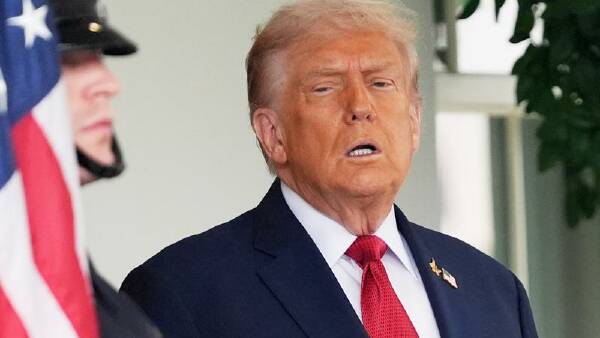
Donald Trump, the President of the United States, has made a significant commitment regarding the future of the West Bank. During a press conference on October 20, 2023, Trump stated unequivocally, “I will not allow Israel to annex the West Bank,” a move that could have far-reaching implications for the region’s stability and the Israel-Palestine conflict.
Trump’s declaration comes amidst ongoing tensions between Israel and the Palestinian Authority. The prospect of annexation has been a contentious issue in the peace process, with many fearing that it could undermine the possibility of a two-state solution. Trump’s statements suggest a shift in U.S. policy towards a more neutral stance concerning Israeli territorial claims, which have been a focal point of international debate.
Implications for U.S.-Israel Relations
This announcement has raised questions about the future of U.S.-Israel relations, particularly under Trump’s administration. Historically, the U.S. has been one of Israel’s staunchest allies, often providing military and financial support. By opposing the annexation of the West Bank, Trump may be attempting to balance U.S. interests in the Arab world while maintaining support for Israel.
In recent years, the idea of annexation gained traction among some Israeli leaders, particularly those on the right of the political spectrum. They argue that annexation would solidify Israel’s control over significant portions of the West Bank, which they view as integral to the nation’s security. Trump’s opposition to this move could signify a shift in how the U.S. perceives the viability of such claims.
Trump’s comments align with the U.S. administration’s broader strategy to encourage dialogue between Israel and the Palestinian Authority. By taking a clear stand against annexation, Trump aims to foster an environment conducive to negotiations, which many believe are essential for achieving lasting peace in the region.
Reactions from Global Leaders
The international community has responded with cautious optimism to Trump’s pledge. Global leaders have long expressed concern that annexation would exacerbate tensions and hinder the peace process. The European Union and various human rights organizations have consistently advocated for a two-state solution as the only viable path towards peace.
In response to Trump’s announcement, the Palestinian Authority welcomed the statement but remains skeptical. Palestinian officials have emphasized the need for concrete actions rather than verbal assurances. They argue that the U.S. must take tangible steps to support Palestinian rights and statehood, calling for an end to settlement expansion and a renewed commitment to negotiations.
As the situation evolves, the world will be watching closely to see how Trump’s administration implements this commitment and whether it can influence the trajectory of the Israel-Palestine conflict. The stakes are high, and Trump’s pledge may serve as a pivotal moment in the ongoing struggle for peace in the region.






